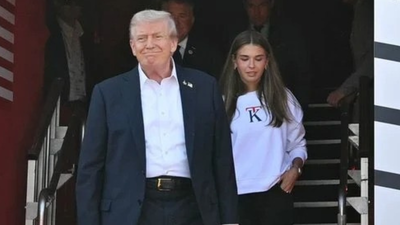America may end or restrict OPT: The what, why, and how of a looming crackdown

The Trump administration is preparing new rules that could significantly restrict the Optional Practical Training (OPT) programme for international students, reported Forbes. The proposed regulations, listed on the Department of Homeland Security (DHS) regulatory agenda, aim to align practical training with the programme’s objectives while addressing fraud, national security concerns, and protecting US workers. The rules could be introduced by the end of this year or in the first half of 2026.OPT allows F-1 visa students to work in the US for up to 12 months after graduation, with a 24-month STEM extension for science, technology, engineering, and mathematics graduates. It has long been considered a crucial bridge between academic training and full-time employment, as reported by Forbes.Why USCIS and immigration experts are against OPTJessica Vaughan, Director of Policy Studies at the Center for Immigration Studies (CIS), and Joseph Edlow, Director of US Citizenship and Immigration Services (USCIS), have both argued that OPT is legally questionable and potentially structurally harmful. Vaughan told the House Judiciary Subcommittee that OPT represents “the largest unregulated guest worker scheme in the United States,” and cited internal data from US Immigration and Customs Enforcement (ICE) and DHS showing over 540,000 work authorisations granted under OPT and CPT in FY2023.Edlow, in USCIS memoranda and congressional briefings, noted that the Immigration and Nationality Act (INA) does not authorise post-completion work for F-1 visa holders. He argued that student visas are intended for study, not for work after graduation, and criticised the 2023 D.C. Circuit Court ruling that upheld OPT and STEM extensions as “an erroneous reading of statutory intent.” Both Vaughan and Edlow have called for tighter enforcement and for OPT to be either terminated or severely restricted.Former White House senior adviser Stephen Miller also weighed in on the issue, stating in an interview with the House Judiciary Committee that “OPT has become a de facto work visa that undermines American workers’ opportunities and puts downward pressure on wages,” as quoted by the committee transcript. Both Vaughan, Edlow, and Miller have called for tighter enforcement and for OPT to be either terminated or severely restricted.FICA taxes for OPT students: A restrictive measureUnder current rules, F-1 students on OPT who qualify as nonresident aliens are exempt from Social Security and Medicare (FICA) taxes. For instance, a graduate earning $60,000 per year saves roughly $4,590 annually in payroll taxes.A proposed immigration reform bill, included in the DIGNITY Act of 2025, could end this exemption, requiring OPT participants to pay the full 15.3% payroll tax, split between employees and employers. This proposal was introduced by Congresswomen María Elvira Salazar and Veronica Escobar and has sparked concern among universities and employers who currently benefit from hiring OPT students without contributing to payroll taxes.Implications for US employers and universitiesIf the FICA exemption is revoked, employers may face higher costs for hiring international graduates. Smaller firms and startups could prioritise domestic candidates or move roles overseas. Universities fear the additional financial burden could deter international students, weakening the talent pipeline that fuels research and innovation across US campuses. As reported by DHS, more than 200,000 international students participate in OPT annually, with many employed in healthcare, engineering, and information technology sectors.Will OPT changes affect Indian students?Indian students form a significant portion of OPT participants. As reported by the Indian Ministry of External Affairs, nearly 98,000 Indian students received OPT authorisations during the 2023–24 cycle. The OPT Observatory reports a decline in participation from 95 percent to 78 percent in recent years.US Immigration and Customs Enforcement’s SEVIS 2024 report shows that over 194,554 international students received work authorisation under OPT last year, with 95,384 obtaining STEM OPT extensions. Since 2017, overall foreign student enrollment in the US has fallen by 18 percent, while Indian student enrollment has dropped by 42 percent, as reported by ICE. These changes could further reduce opportunities for Indian graduates to stay in the US after completing their degrees.






